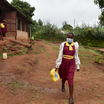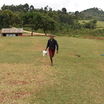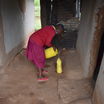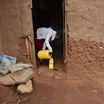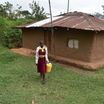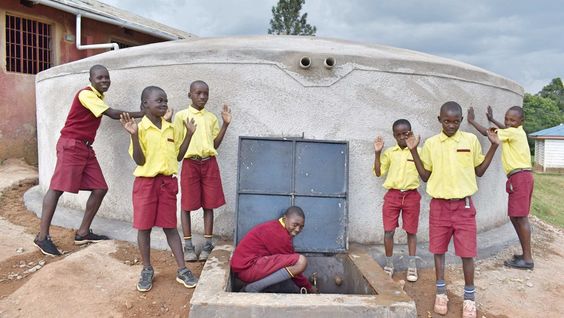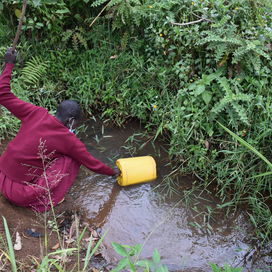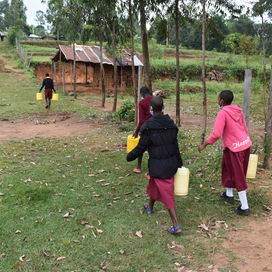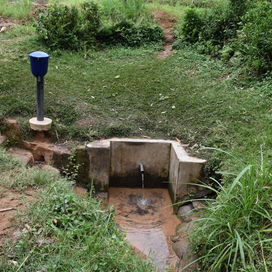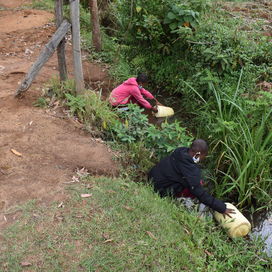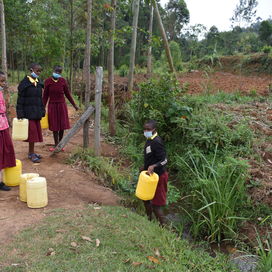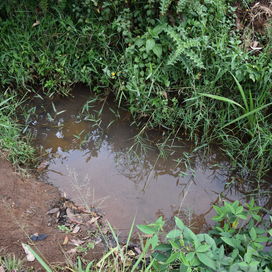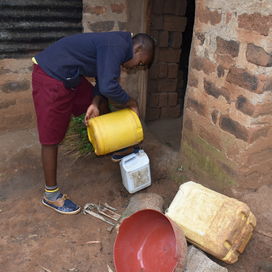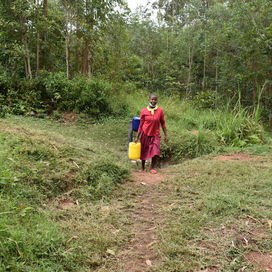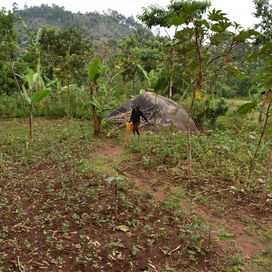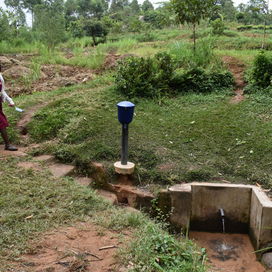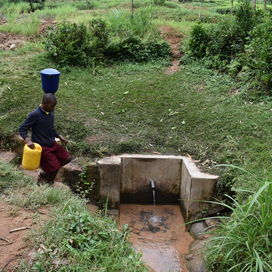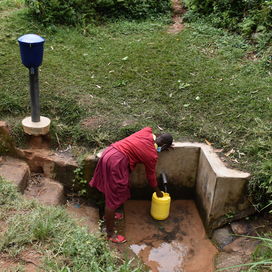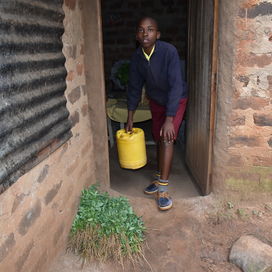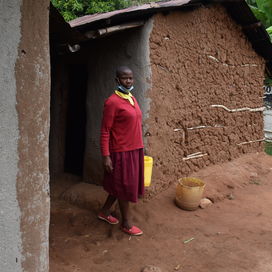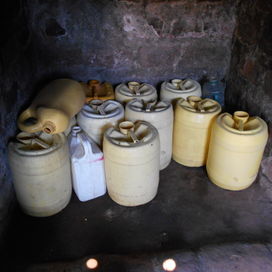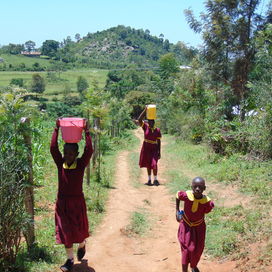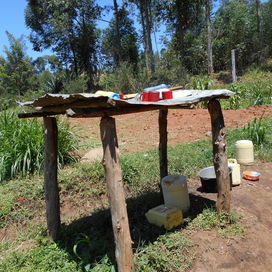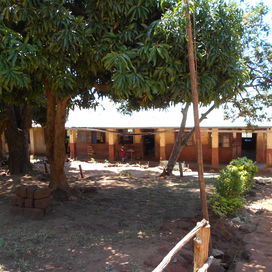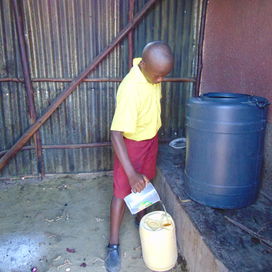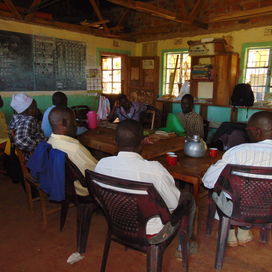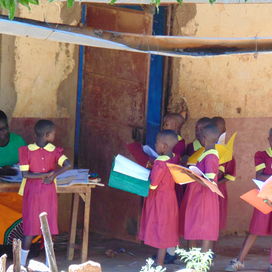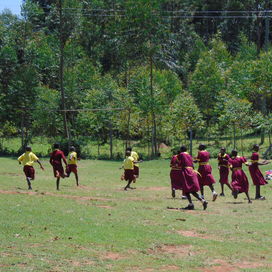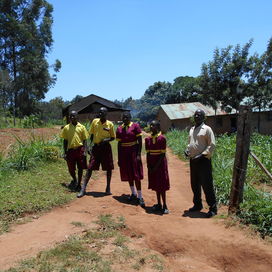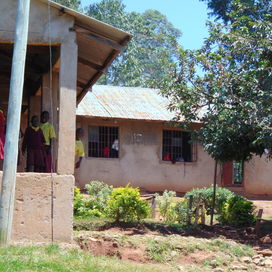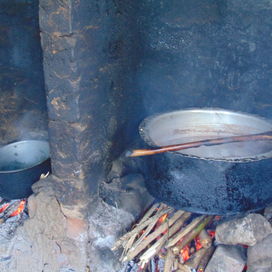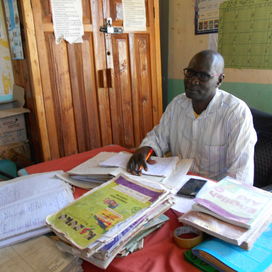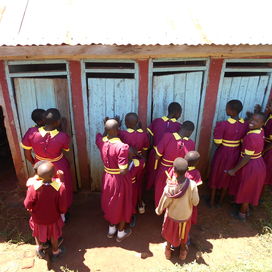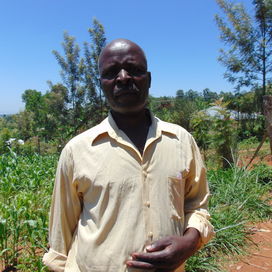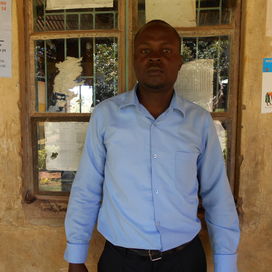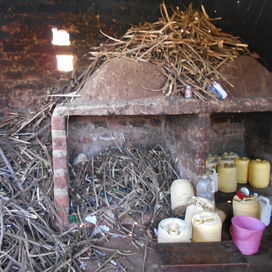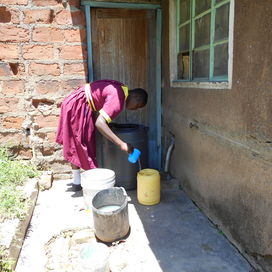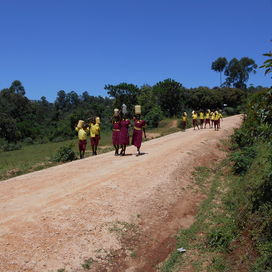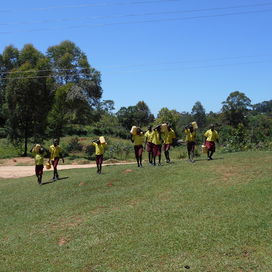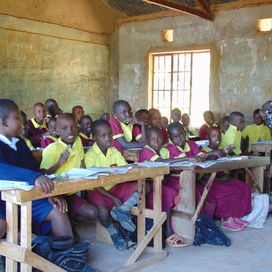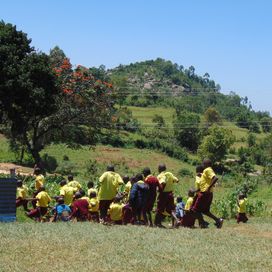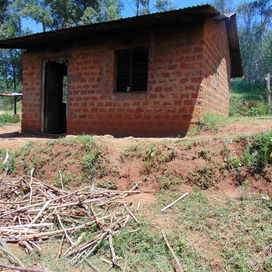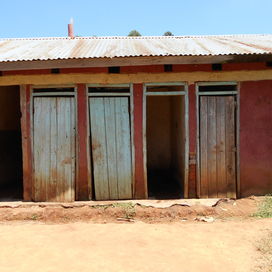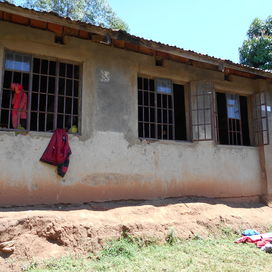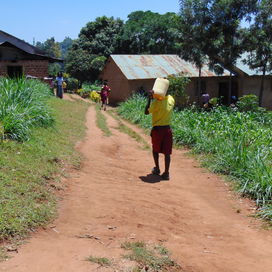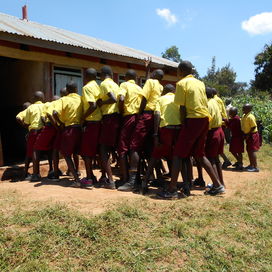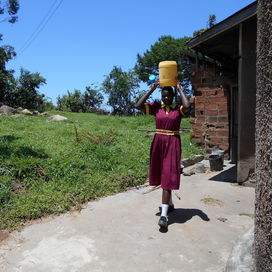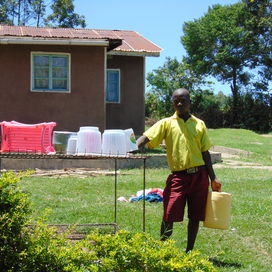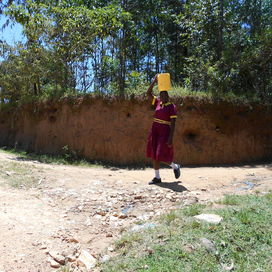Founded in 1992, Givudemesi Primary School has never had a water source on campus. Instead, it relies on students bringing water from home – but where they collect their “home” water varies.
(Some photos pre-date the pandemic.)
“The school has selected only four students to bring cooking water from one source so that we can be sure that the water is safe for cooking. Since I am one of them, it is strenuous because I have to miss a lesson to go home and bring water in case it is not enough for the day.”
This is 15-year-old student Enock reflecting on how his school’s water crisis has become a personal burden. Enock is just 1 of the 293 students and 13 teachers and staff at Givudemesi Primary School who face a severe water shortage at school every day.
Founded in 1992, Givudemesi Primary School has never had a water source on campus. Instead, it relies on students bringing water from home – but where they collect their “home” water varies.
Some students use a protected spring. Others opt for open surface water sources such as small creeks and storm runoff on the sides of the road to school to hasten the task. These roadside water sources are unquestionably contaminated and not safe for human consumption.
Because students’ water is combined for use at school, even one contaminated source means everyone suffers. Waterborne illnesses among students are common, the school reports. Diarrhea and amoeba drive absenteeism, affecting the entire school community.
“Our staff members buy drinking water or carry it from home because they do not trust that the water sources used by the students are safe or clean,” explained Deputy Head Teacher Mr. Nathan Muchela. There is no method of treating the collected water once at school.
Every day, each student must bring a container full of water from home in the morning, and then another one during lunchtime. As Enock mentioned, there are a select few who must return home for additional water even more frequently throughout the day.
For all of these students, the process is time-consuming and tiresome. They are often late to class or miss them entirely due to the time spent on the walk, and many arrive at school already too tired to focus. Their academic performance is, not surprisingly, negatively impacted.
Hygiene and sanitation standards at Givudemesi Primary School are below average since there is barely enough water to keep the school running as required. Healthy practices like washing the kitchen utensils, latrines, classrooms, and handwashing are often sacrificed.
“The students need free time to enjoy their studies and playtime without worrying about bringing water to school,” said one teacher. We could not agree more.
What We Can Do:
Rain Tank
A 75,000-liter rainwater catchment tank will help alleviate the water crisis at this school. The school will help collect the needed construction materials such as sand, bricks, rocks, and water for mixing cement. We will complement their materials by providing an expert team of artisans, tools, hardware, and the guttering system. Once finished, this tank will begin catching rainfall that will be used by the school’s students and staff for drinking, handwashing, cooking, cleaning, and much more.
We and the school strongly believe that all of these components will work together to improve standards at this school, which will help lead to better student academic performance and will help to unlock the potential for these students to live better, healthier lives.
Handwashing Stations
There is currently nowhere for students to wash their hands after using the latrines or before eating lunch, let alone the water to do so.
The student health club will oversee the two new handwashing stations we will provide, and make sure they are kept clean and in working condition. The club leaders will fill the handwashing stations with water daily and make sure they are always supplied with a cleaning agent such as soap or ash.
VIP Latrines
Two triple-door latrine blocks will be constructed with local materials that the school will help gather. Three doors will serve the girls while the other three will serve the boys. All of these new latrines will have cement floors that are designed to be easy to use and to clean. And with a rain tank right on school property, there should be enough water to keep them clean.
Training on Health, Hygiene, COVID-19, and More
We will hold a one-day intensive training session with students, teachers, and parents. This training will cover a wide range of topics including COVID-19 symptoms, transmission routes, and prevention; personal and environmental hygiene; and the operation and maintenance of the rain tank, latrines, and handwashing stations. There will be a special emphasis on handwashing.
Our team of facilitators will use a variety of methods to train, including participatory hygiene and sanitation transformation, and asset-based community development. We will initiate a student health club, which will prepare students to lead other pupils into healthy habits at school and at home. We will also lead lectures, group discussions, and provide illustrative handouts to teach health topics and ways to promote good hygiene practices within the school including handwashing and water treatment. We will then conduct a series of follow-up trainings before transitioning to our regularly scheduled support visits throughout the year.
0.036745 latitude, 34.7692251 longitude
H2O for Life partners with experienced NGO organizations around the world that build and support clean water, sanitation, and hygiene education projects in schools. These NGO partners cover half the total cost of every project funded through H2O for Life.
When students raise money for a project, 90% of the funds go directly to the project, and 10% supports the work that makes the project possible. This includes choosing trusted partners, managing funds responsibly, checking on projects, and reporting back so students can see the impact of their work.
This helps ensure every project is done well, stays sustainable, and truly changes lives.
In rare situations, we reserve the right to reallocate funds to alternate project(s).
Questions? Ask us at 651-756-7577 or info@h2oforlifeschools.org.

